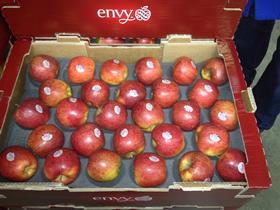
Through the weeks following the UK’s decision to exit the European Union, much has been made of the potential threats that invoking article 50 of the Lisbon treaty could have on the fresh produce industry. Are we missing a trick, however, in ignoring the opportunities for UK companies in markets beyond the EU?
Blue Skies, the fresh-cut and juice specialist based in Pitsford, is already well-versed in operating outside of the EU, boasting factories in Ghana, Egypt, South Africa and Brazil, as well as in the UK. Group brand and communications manager Simon Derrick notes that, while the Brexit vote undoubtedly impacts his company due to the sudden collapse of the pound, far less understood is the message the leave vote sends the rest of the world about the UK’s attitude to diversity and inclusivity – two of the cornerstones of Blue Skies’ Joint Effort Enterprise.
However, despite this obvious downside, there are opportunities to be found for those in the UK if you are willing to look beyond Europe. “We are always on the lookout for new opportunities in new markets, and have managed to build a sustainable business by establishing trade with more than one country,” he says. “A weaker pound inevitably has an impact on our business, but this only serves to give us more determination to seek new and exciting opportunities in different parts of the world.”
Indeed, it seems Blue Skies’ eyes are now turning to the Far East, and the potential that trade in that lucrative growth market could have. The group is taking part at this year’s Asia Fruit Logistica as an exhibitor, in a bid to make new contacts for future trade. “As we’re new to this market, we are hoping to learn a lot of information about Asian customers and their demands from attending Asia Fruit Logistica in Hong Kong and establishing contacts in the region,” Derrick adds. “We do not currently export any products to Asia, but we are eyeing potential markets outside of Europe, so watch this space.”
It is also vital that any potential business partners found in Asia would have to meet with Blue Skies’ philosophy surrounding diversity, respect and profit. “We supply a wide variety of customers all over the world, but what we usually find is that those who share our values both in terms of quality and ethics, often see the biggest growth. So we would certainly be looking to build similar relationships in the Far East.”
While Blue Skies is taking its first steps into Asia, another UK company, Worldwide Fruit, has been exporting to the market for a couple of years, having shipped the first consignment of UK-grown apple brand Envy to Singapore and Malaysia in December 2014.
Mike Soulsby of T&G Global, whose role is sales of European produce to the T&G network across the rest of the world, gives the latest on the programme and highlights potential for other products in the future. “Currently, the volume of UK Envy available for export is between three to four containers,” he says. “The likelihood is that we’ll target Hong Kong as the main market for this fruit again this coming season. We will look at the possibility of exporting other apple varieties to Asia, for example Royal Gala, and in future seasons there may be potential to export cherries, but the commercial window is short and there needs to be a good crop in order for growers to justify taking on the additional risk of airfreighting product overseas.”
Looking at growth markets outside of Asia, Soulsby says that while there is market access for UK apples into the UAE, it is a “highly competitive” market where all other major European producer nations have been present for some time, making it difficult to establish a foothold.
And what of the wider implications of the Brexit vote? Could we see more UK companies join Worldwide Fruit in eyeing markets beyond the current comfort zone of Europe? According to Soulsby, ultimately it should make little difference, with diversification of markets to be encouraged regardless of the UK’s status.
“Certainly the cheaper currency should increase the attractiveness to Asian markets of, for example, UK apples versus French or US fruit this coming season,” he explains. “But really the UK’s status within the EU has no impact on its ability to explore these markets, as phytosanitary access is in any case negotiated on an individual country basis. Whether the UK is in the EU or out of it, diversification into non-EU markets is ultimately healthy for the industry.”



